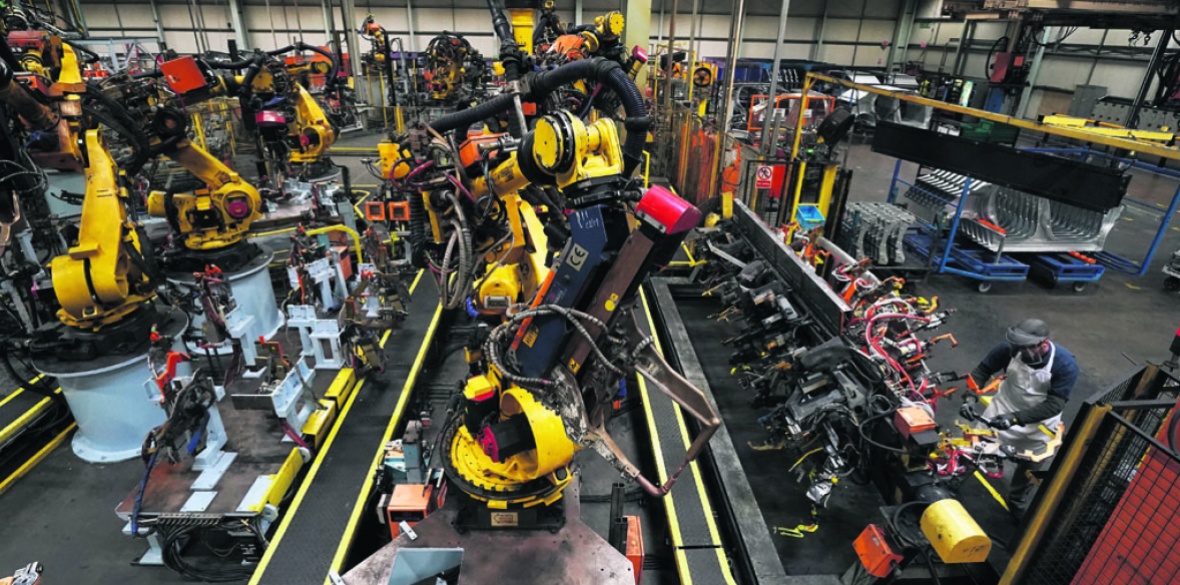This is the last article you can read this month
You can read more article this month
You can read more articles this month
Sorry your limit is up for this month
Reset on:
Please help support the Morning Star by subscribing here
WITH every election we are tempted to say that this is the most important one ever. Well this one will be. It will define our future, our children’s future and in a very real sense, the future of our planet — and we must not let them down.
This will be the fight of our lives in a country divided by consequences of the EU referendum and the catastrophic effects of austerity, between the millionaires and the desperately poor, those in well-paid, unionised, stable work and those struggling in a precarious day-by-day existence on the sidelines.
So, when we put our cross by Labour on the ballot, we are saying “Time’s up for the Tories, for the party of wealth and privilege. This is our time. It’s time for the many!”
Here in Brighton for our manufacturing sector conferences, it’s time for investment, intervention, planning and strategic public ownership to deliver the change necessary to meet the demands of our class and our planet.
Conservative ministers, free marketeers roaming the corridors of Westminster, simply don’t care. They don’t listen or want to listen to the numerous examples of how Tory and coalition governments, since 2010, have continuously failed UK plc.
Take just one example — Honda’s recent decision to close its Swindon factory. Their decision to leave Swindon is about more than Brexit or EU/Japan trade deals. These don’t help of course, but it’s about long-term industrial planning, strategic government support and the investments required to transition from the internal combustion engine to alternative power sources.
For British manufacturing, of course we’re fighting to stop the catastrophic disaster that will follow any crashing out of the EU either without a deal or with Johnson’s bad deal. Our industries rely on “just in time and synchronised” delivery of components to maintain daily production, along with frictionless trade, regulatory convergence and tariff-free access to our largest market.
To defend jobs and ensure no family or community is left behind as we transition our economy to the sustainable green economy of the future, advanced manufacturing must be at its heart. The government must support and invest in our regions, while driving innovation and intervening to ensure effective public control over strategic assets and foundation industries to make that happen. Our “Manufacturing Matters” political and industrial strategy, which we’re launching today, outlines exactly how we can and must do this with the election of a Labour government.
The strategy, with a long-term industrial plan, provides a route map for industry. Rooted in trade union and labour values its aim is the delivery of a strong, diverse economy providing secure, skilled jobs. At its beating heart is sustainable manufacturing based on an ambitious ten-point plan that includes investment, defending foundation industries and, crucially, “Build Local, Buy UK.”
We have in our hands the power to make sure that Britain’s public sector uses its procurement budget to support British manufacturing and the supply chains.
Jobs must also be reshored. We must bring back manufacturing that has been moved overseas, shorten supply chains and reduce our global carbon footprint — and we need a “just transition” to sustainable jobs. Workers must be leaders in our industries — from steel to vehicle electrification, energy generation to the construction of the council homes we desperately need. Trade unions must be on the front line of the green industrial revolution.
Guaranteeing high quality vocational apprenticeships and lifelong learning are also key. Workers must have the opportunity to learn new skills and develop during downtimes.
And then there’s Industry 4.0 — automation and artificial intelligence. The next industrial revolution can either herald in a dystopian future or it can enrich our lives, freeing us to fulfil our true potential as human beings. Only with a strong, determined and confident trade union voice will this next industrial revolution benefit workers and our class.
Sectoral collective bargaining, true industrial democracy and new corporate ownership models providing a collective voice for working people via their unions are central to the long-term future of advanced, sustainable manufacturing.
With a radical, forward-thinking and an unashamedly interventionist government anything is possible. Our strategy for manufacturing lays out such a vision and we call on our movement to get behind its delivery. A new economy and politics that works for the many not the few relies on a strong manufacturing base, as does our vision for enhanced public services.
As I wrote at the start of this article, who you vote for matters. This is our chance to build on what we — the labour movement — have been creating since 1945. It’s our time, it’s time for that fairer, more equal society, a better Britain in a more peaceful world.
This is not an exaggeration. A win for Labour on December 12 is a win for all of us.
Steve Turner is Unite assistant general secretary for manufacturing.











